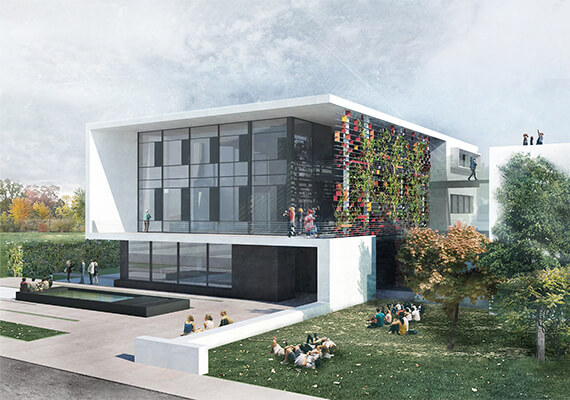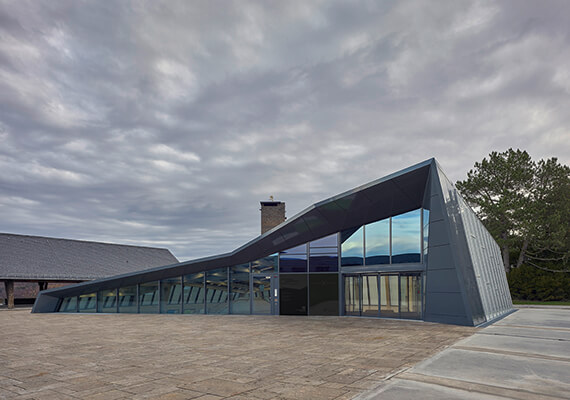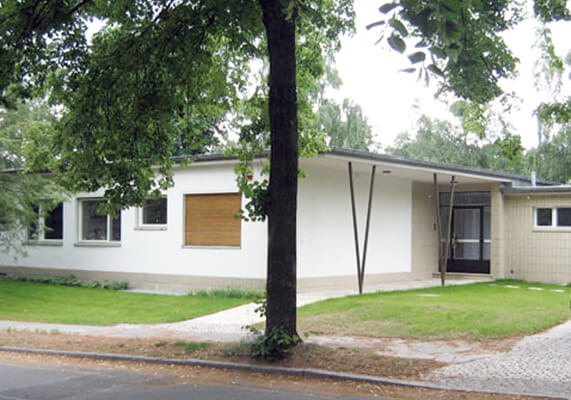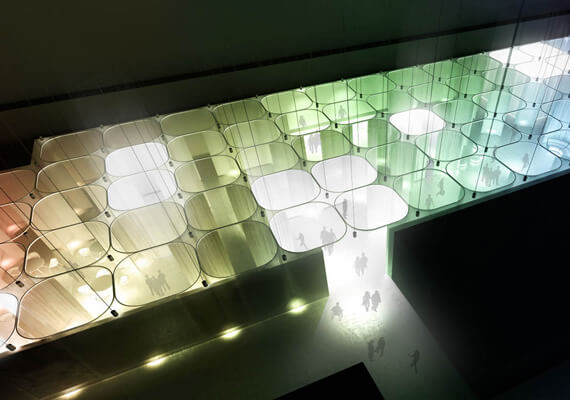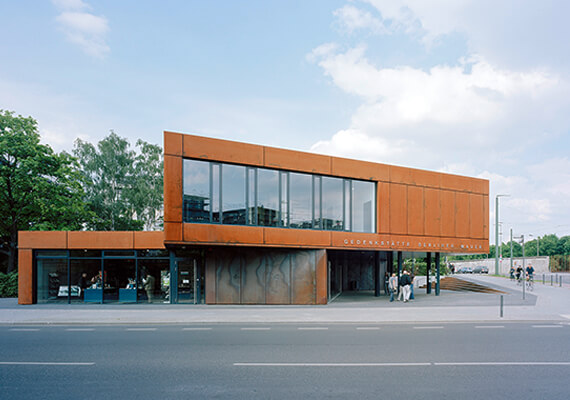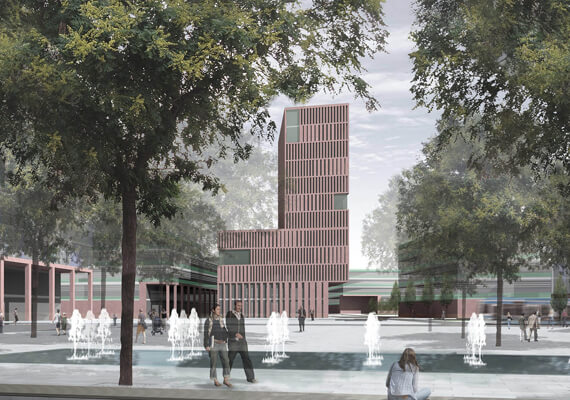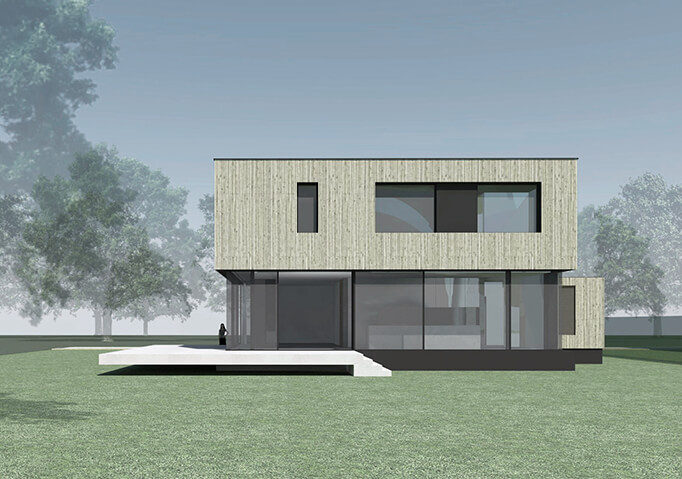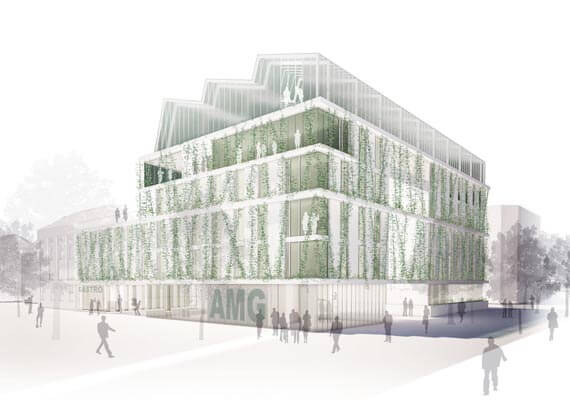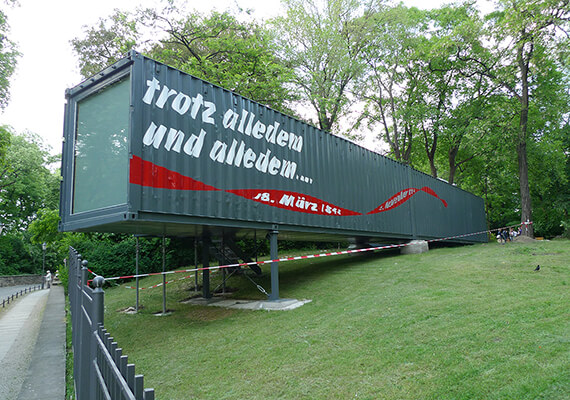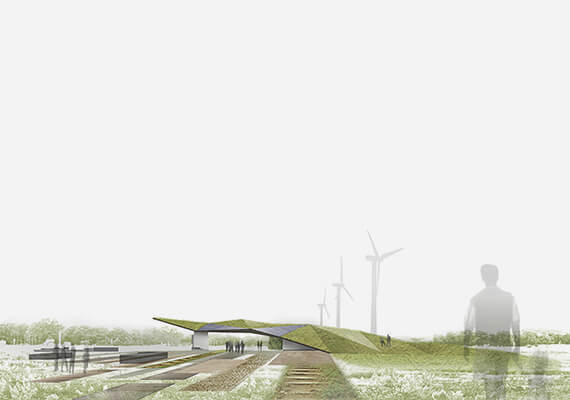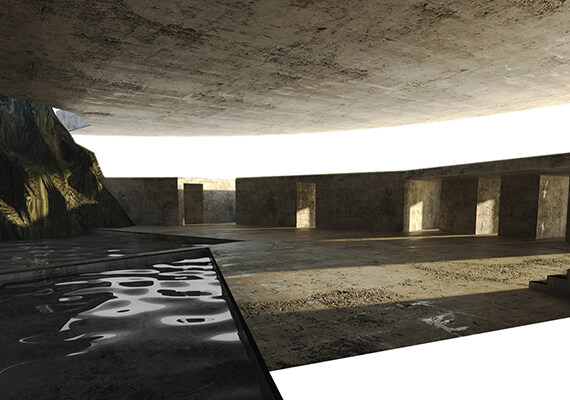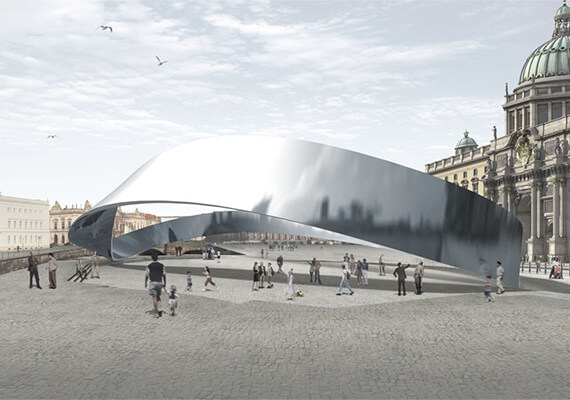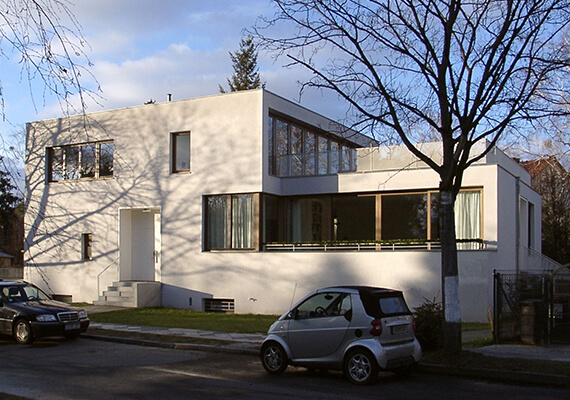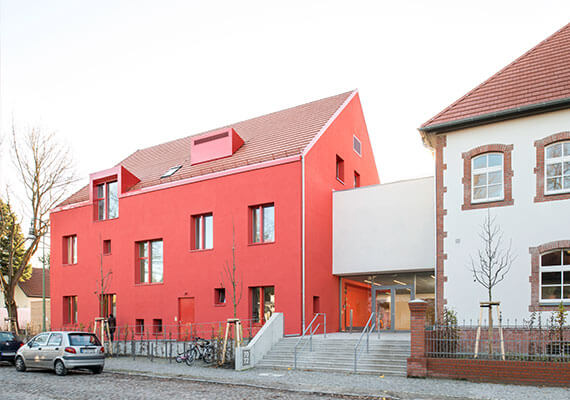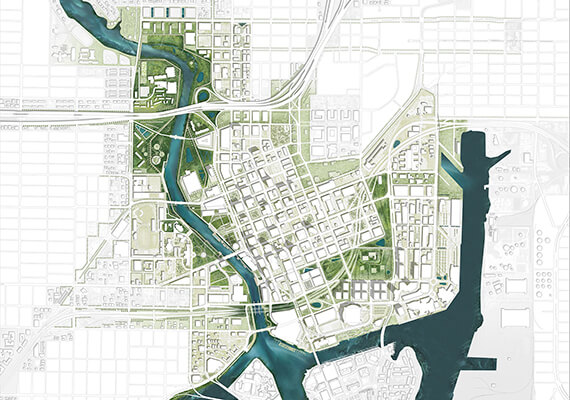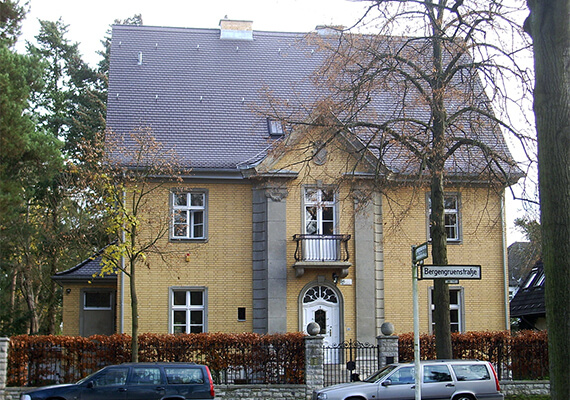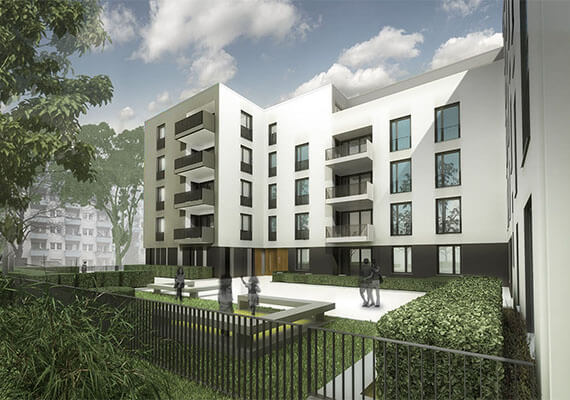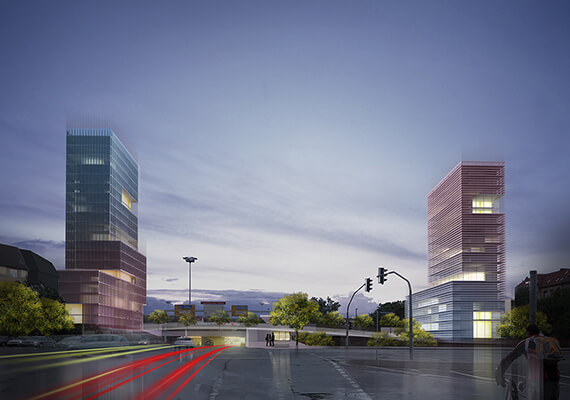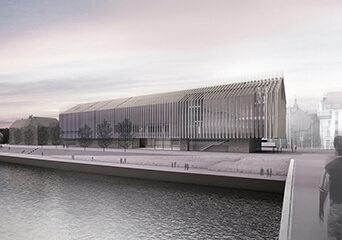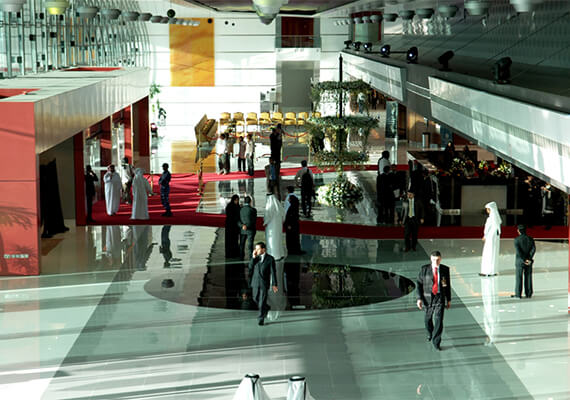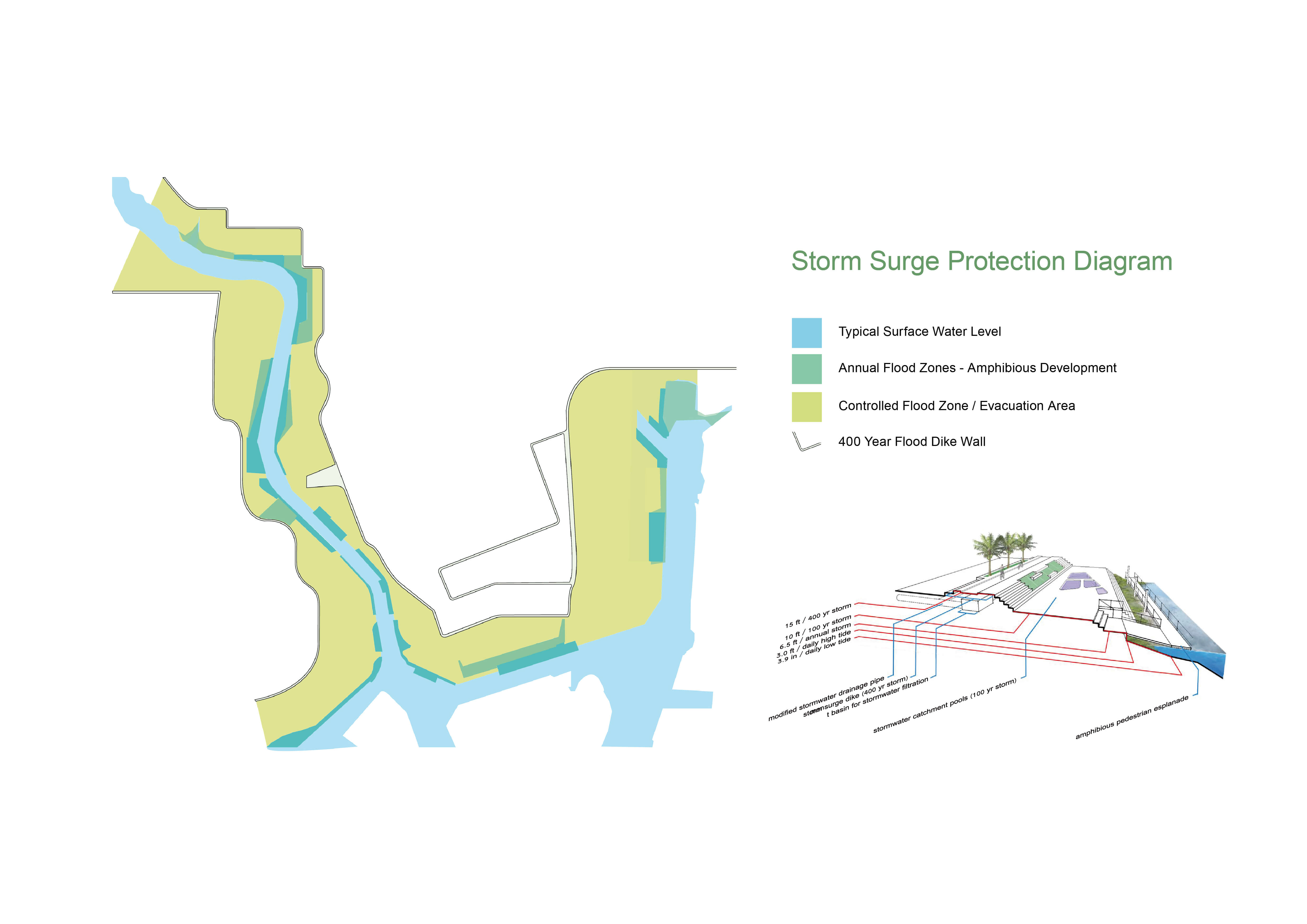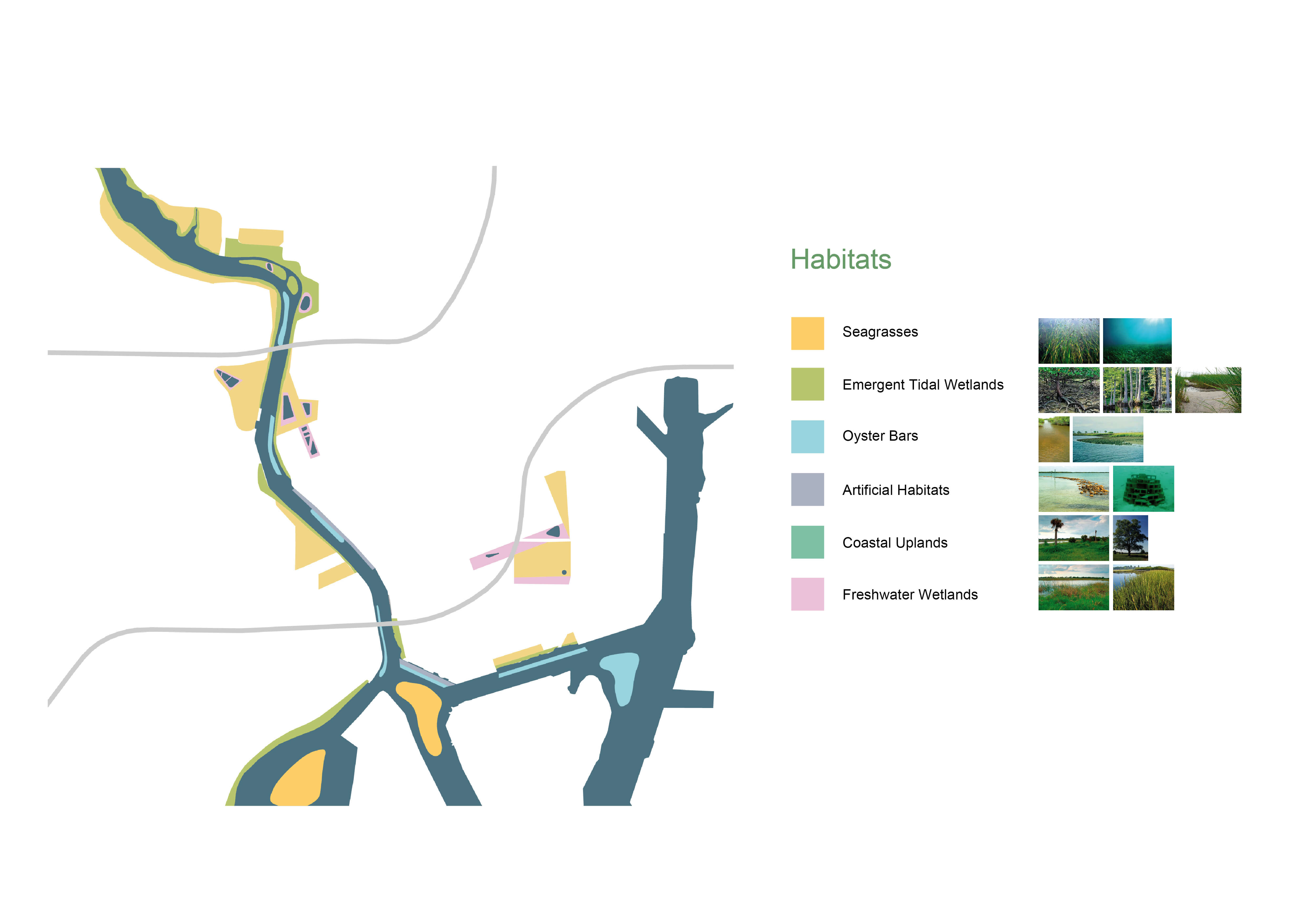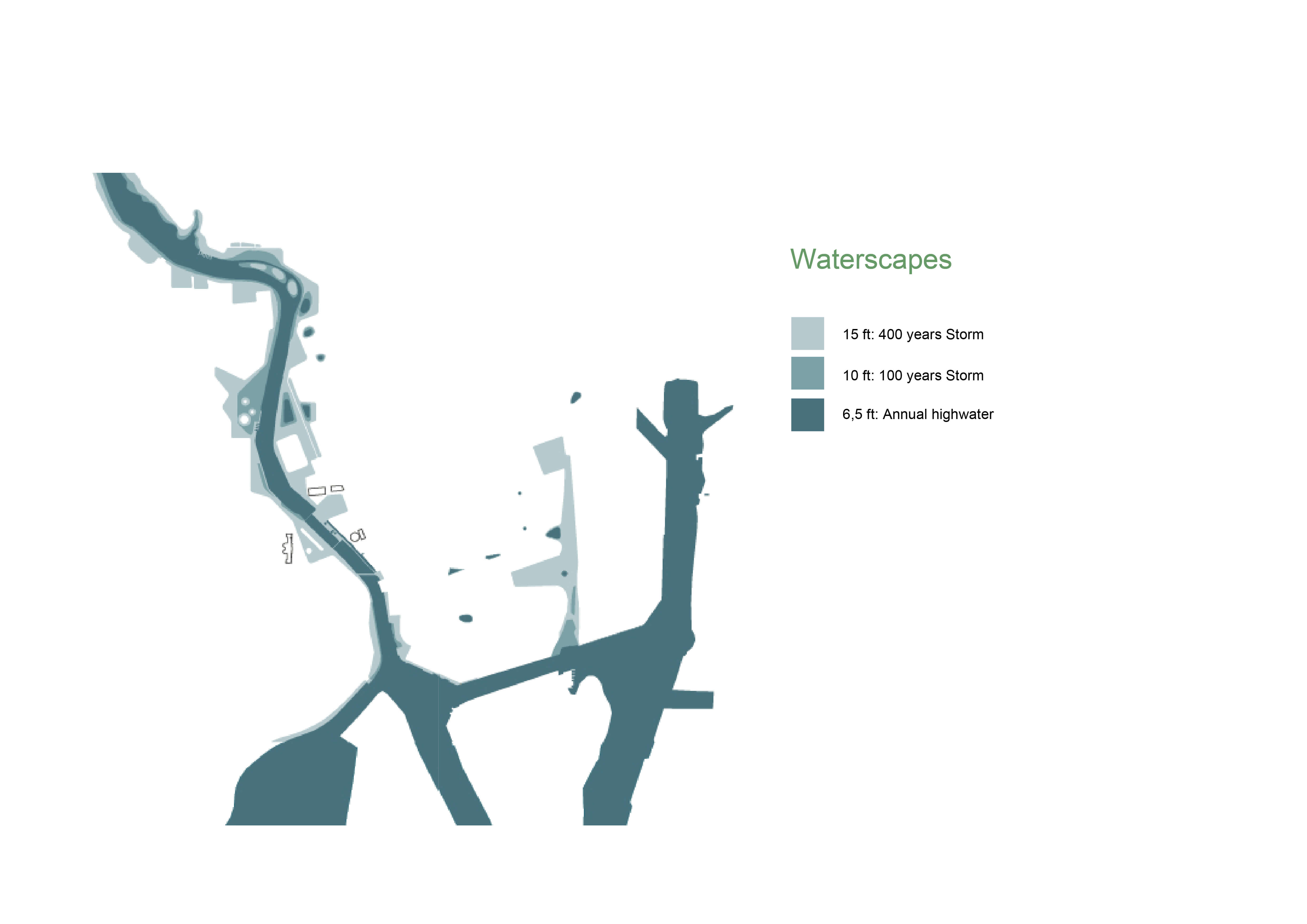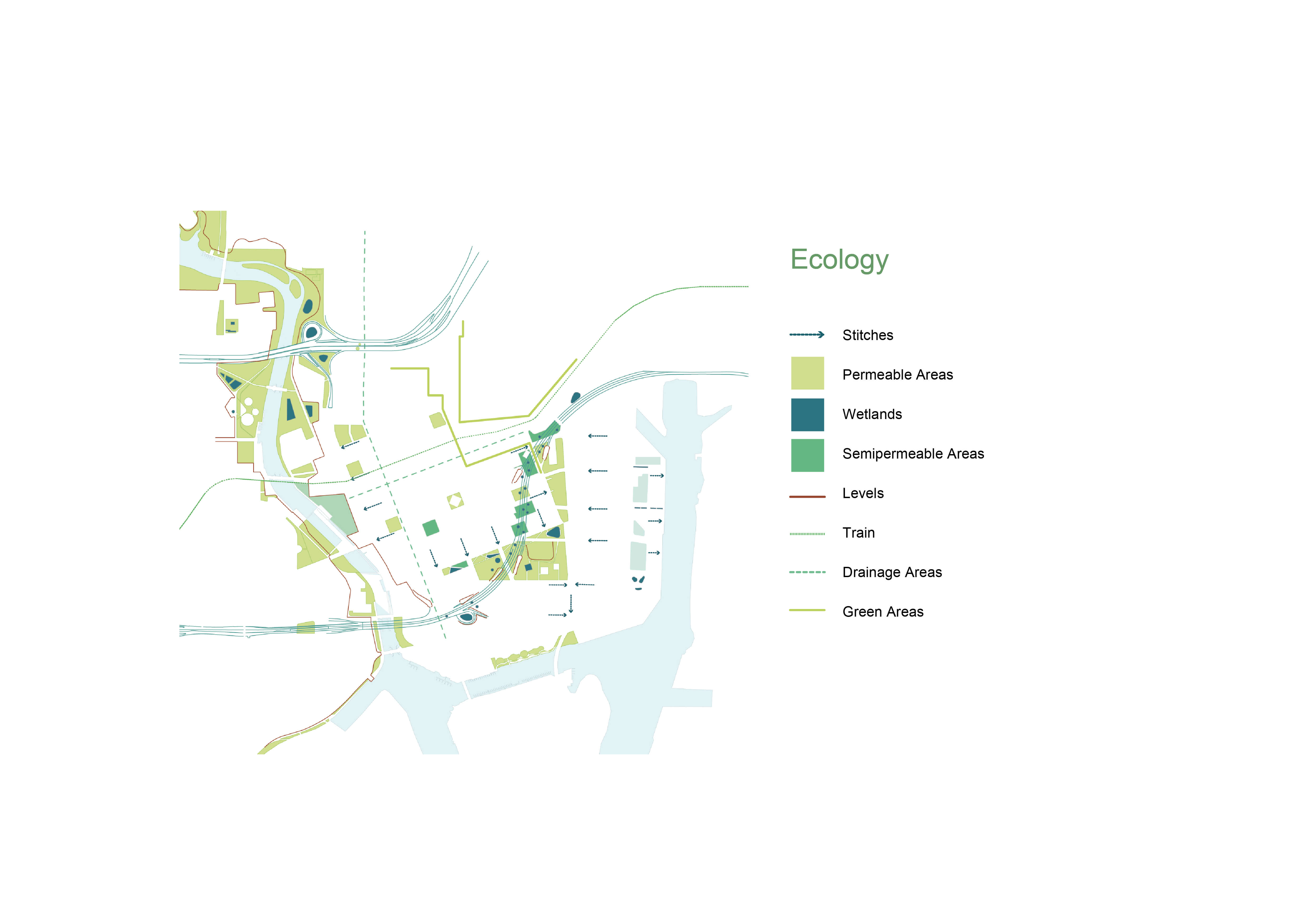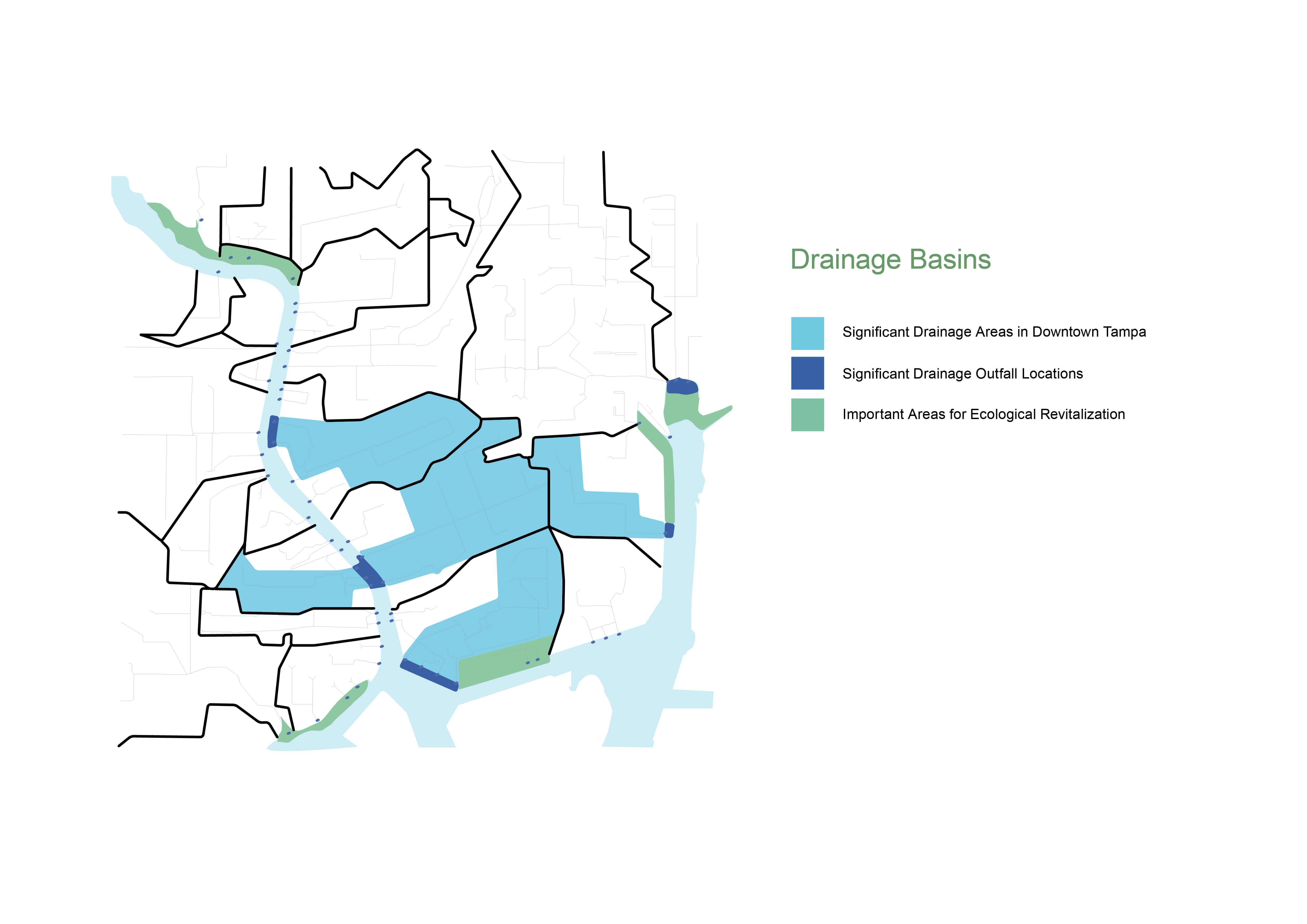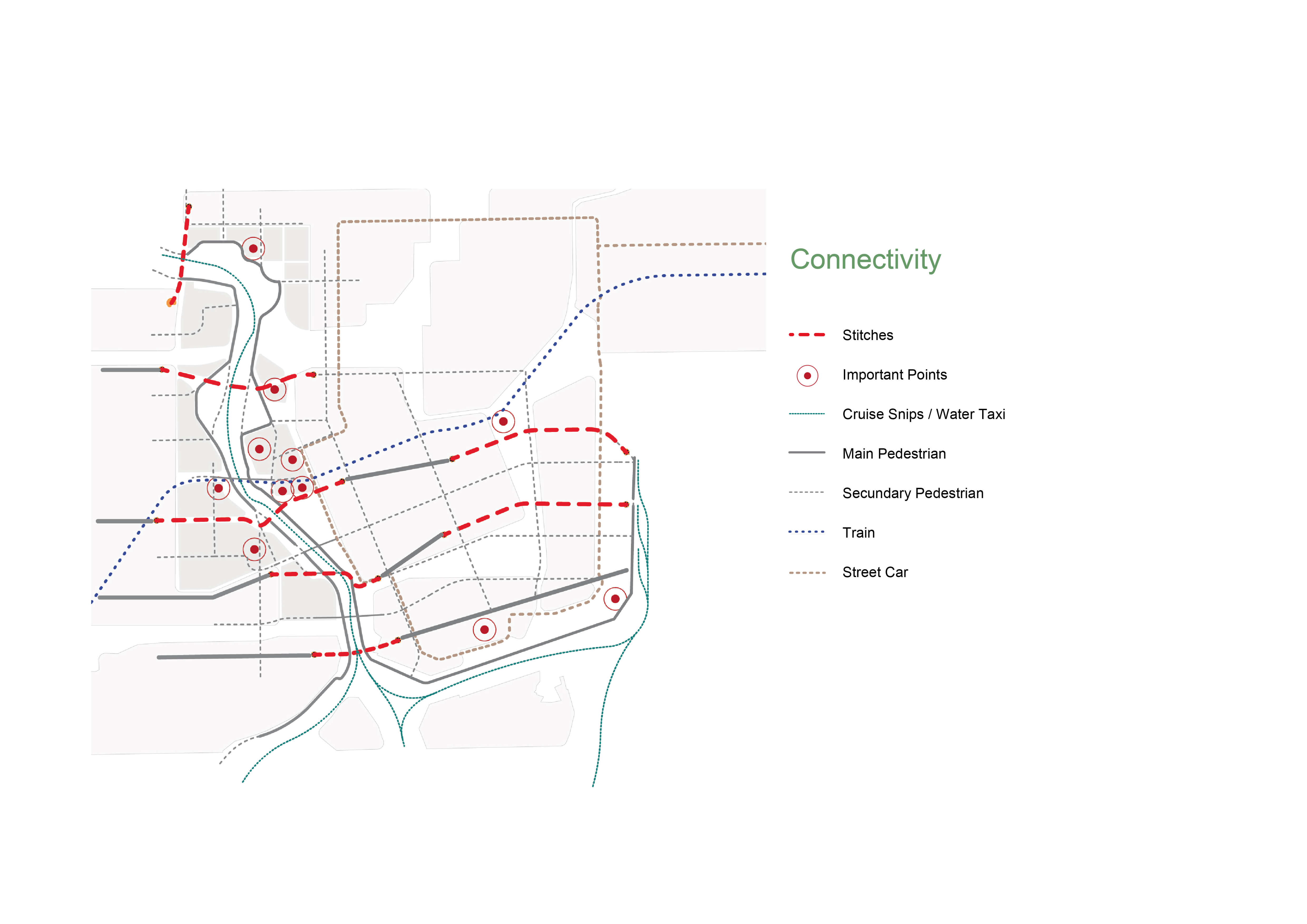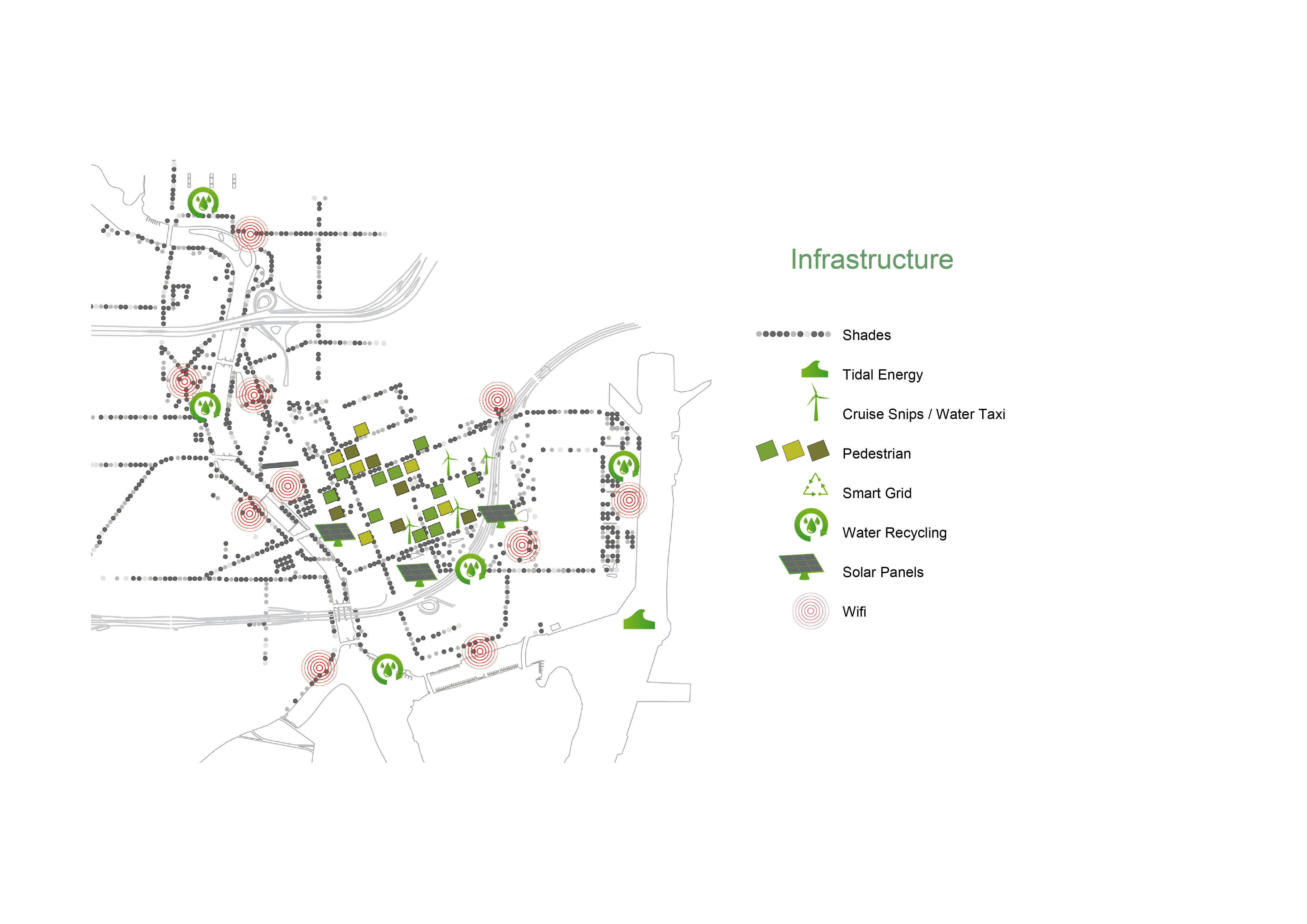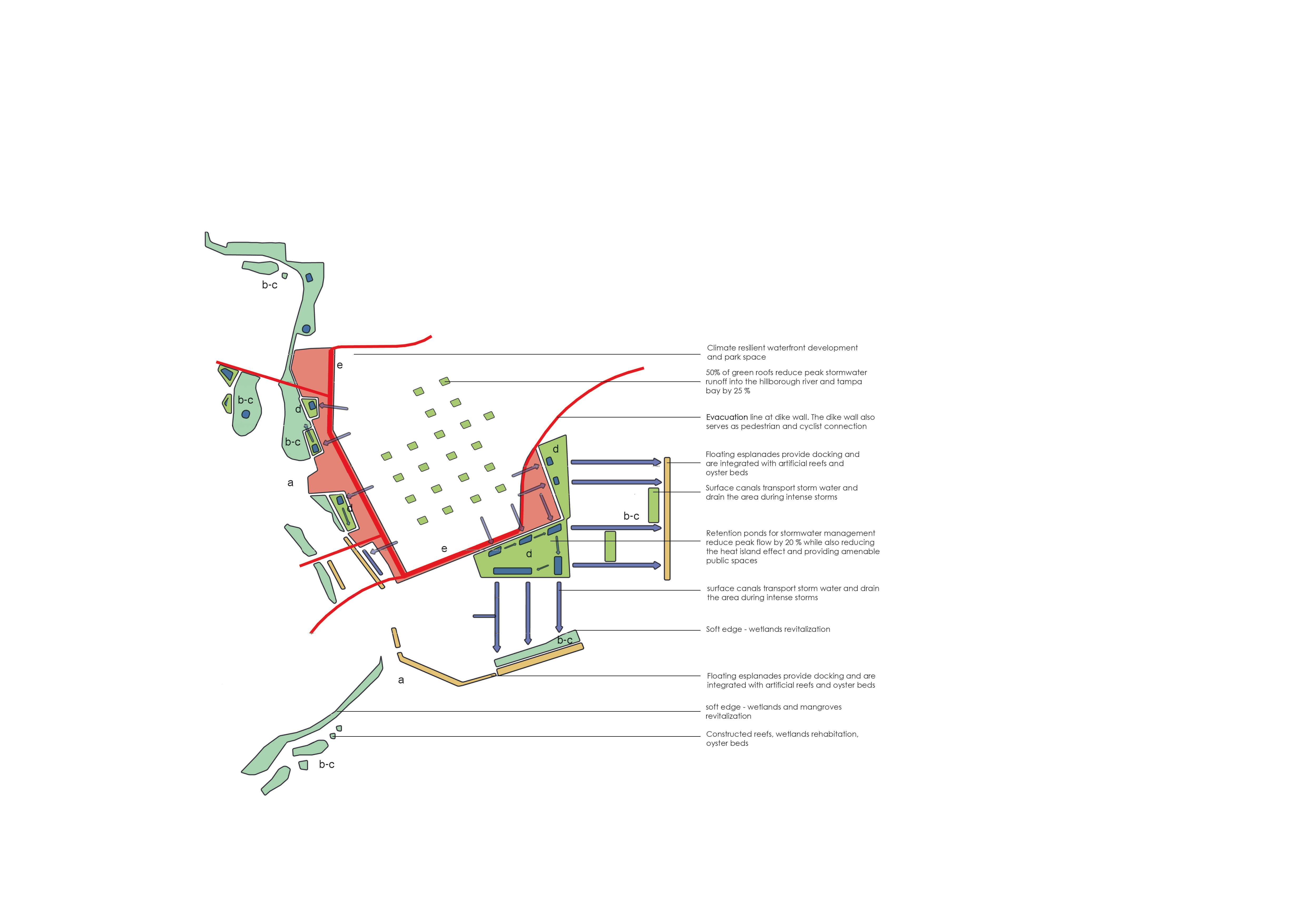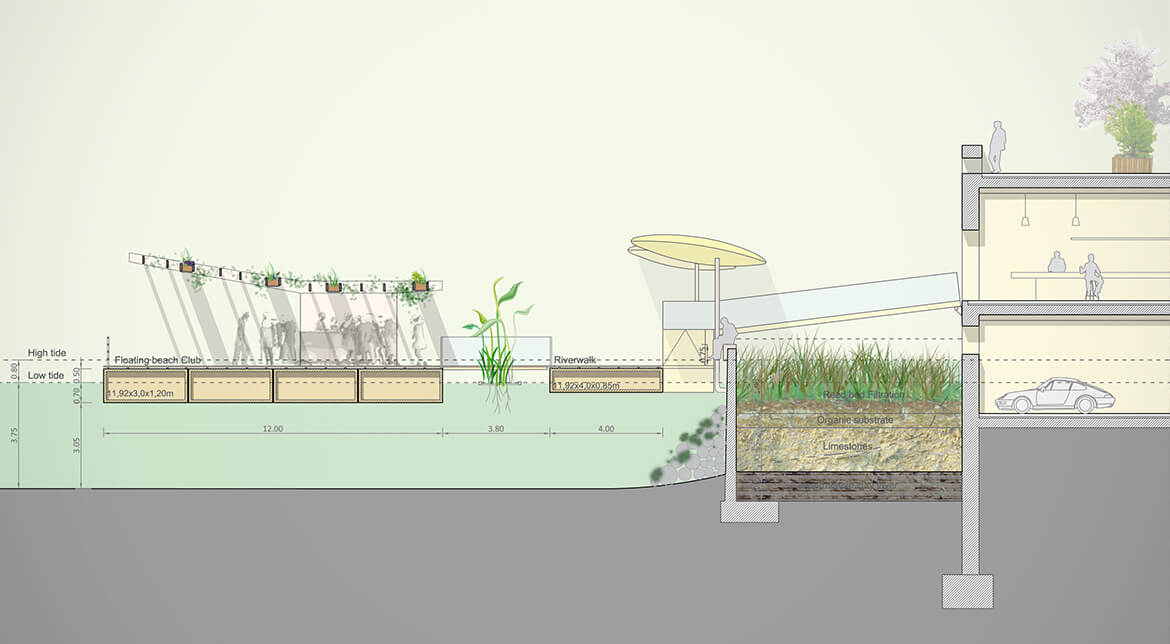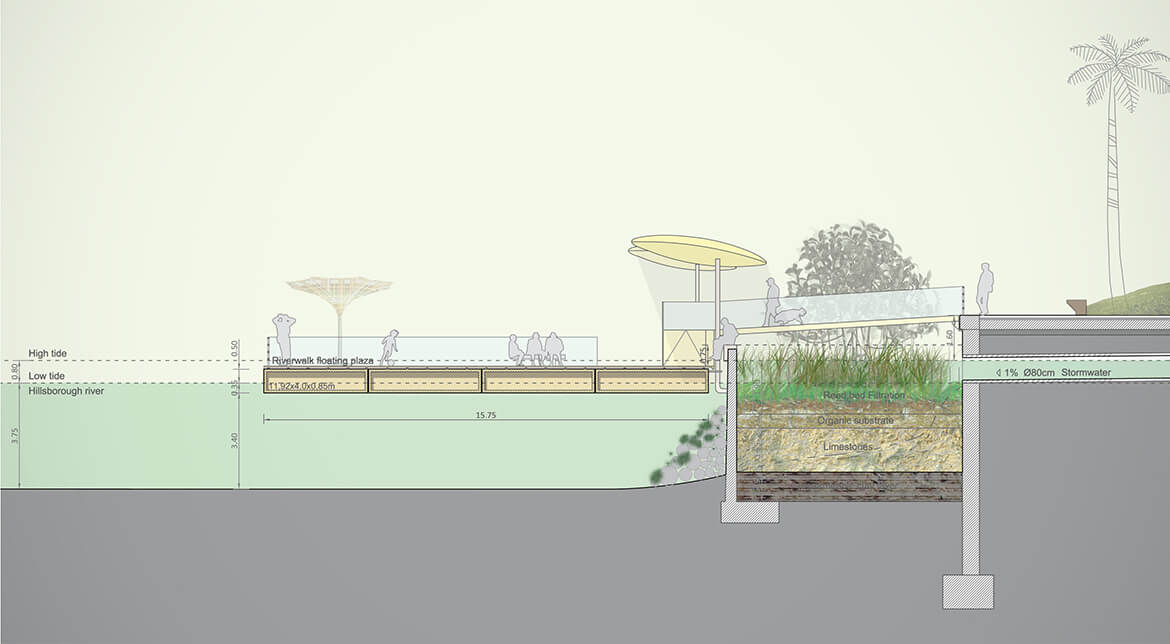Re-Stitch Tampa
Tampa, Florida, USA 2011
Client: National Endownment for the Arts Tampa Re-Stitch
Procedure: Open, international Competition, 1st Prize
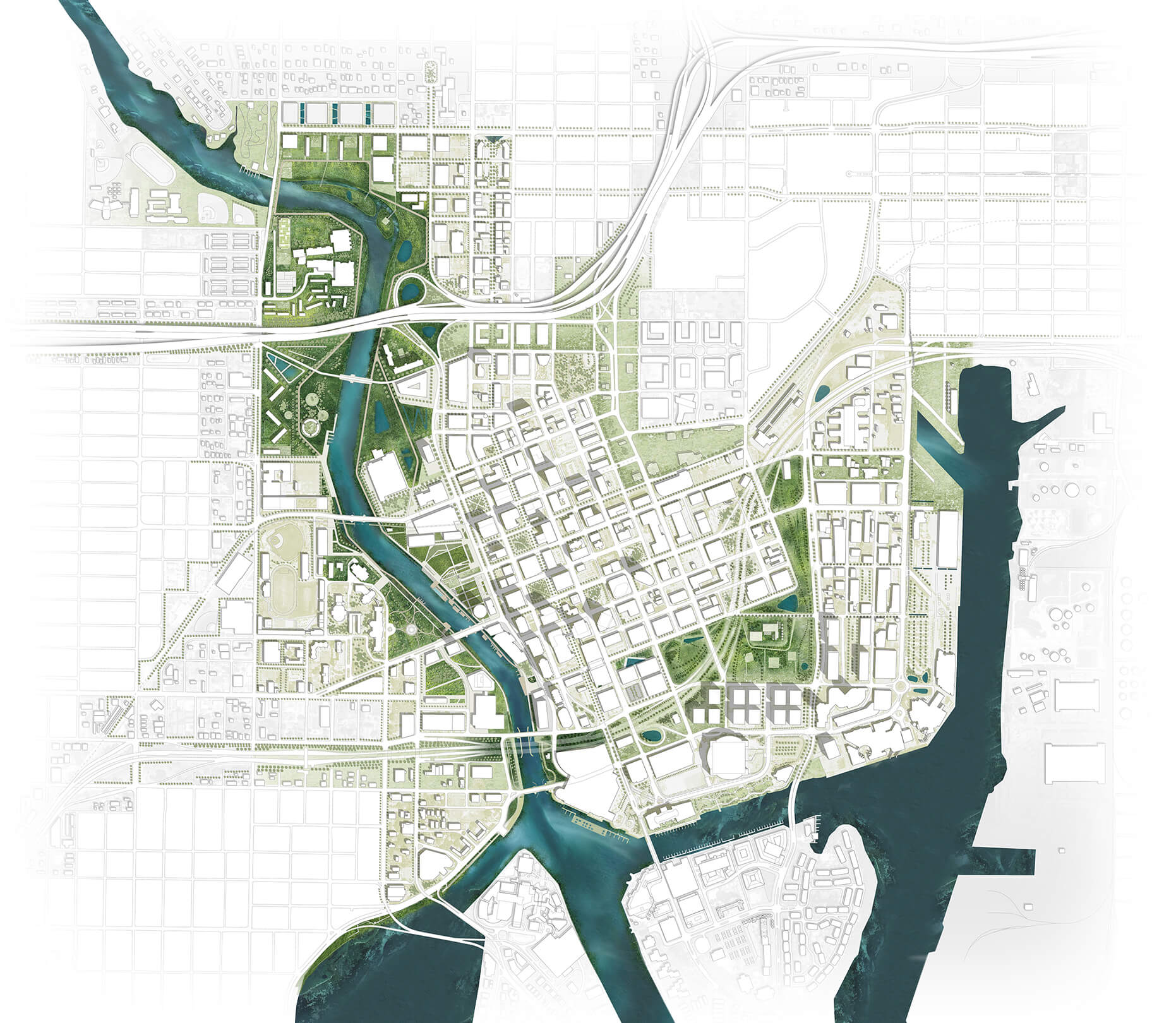

Tampa Bay and the Hillsborough River are critically important ecosystems and vital natural resources that attract and support millions of residents and visitors. However, unsustainable development and lifestyle practices are damaging the local ecosystem, increasing the exposure to storm water flooding, the heat island effect, and water shortages, causing potentially high costs for present and future generations.
Our proposed strategy is to transform the landscape into a malleable archipelago of lush, gridded, urban islands, specific to the city of Tampa and the ecology of the Hillsborough River and Tampa Bay. The urban, vibrant islands provide valuable and public space, but at the same time rainwater management, drinking water use, irrigation, temperature reduction and air filtration for the city.
The drainage systems are integral features of the whole city, which serve for the management of rainwater, the cost and the reduction of riparian ecology. A transition is made from expensive, space-consuming automotive infrastructures to sustainable modes of transport such as pedestrians, bicycles, public transport, e-mobility and car-sharing initiatives. The connections of the inner-city peninsula are strengthened by landscape and goals. Shadow systems, fountains and rain gardens serve as a unifying element and restaurants, E-Mobility Showcase, and Pocket Parks offer a variety of special uses.
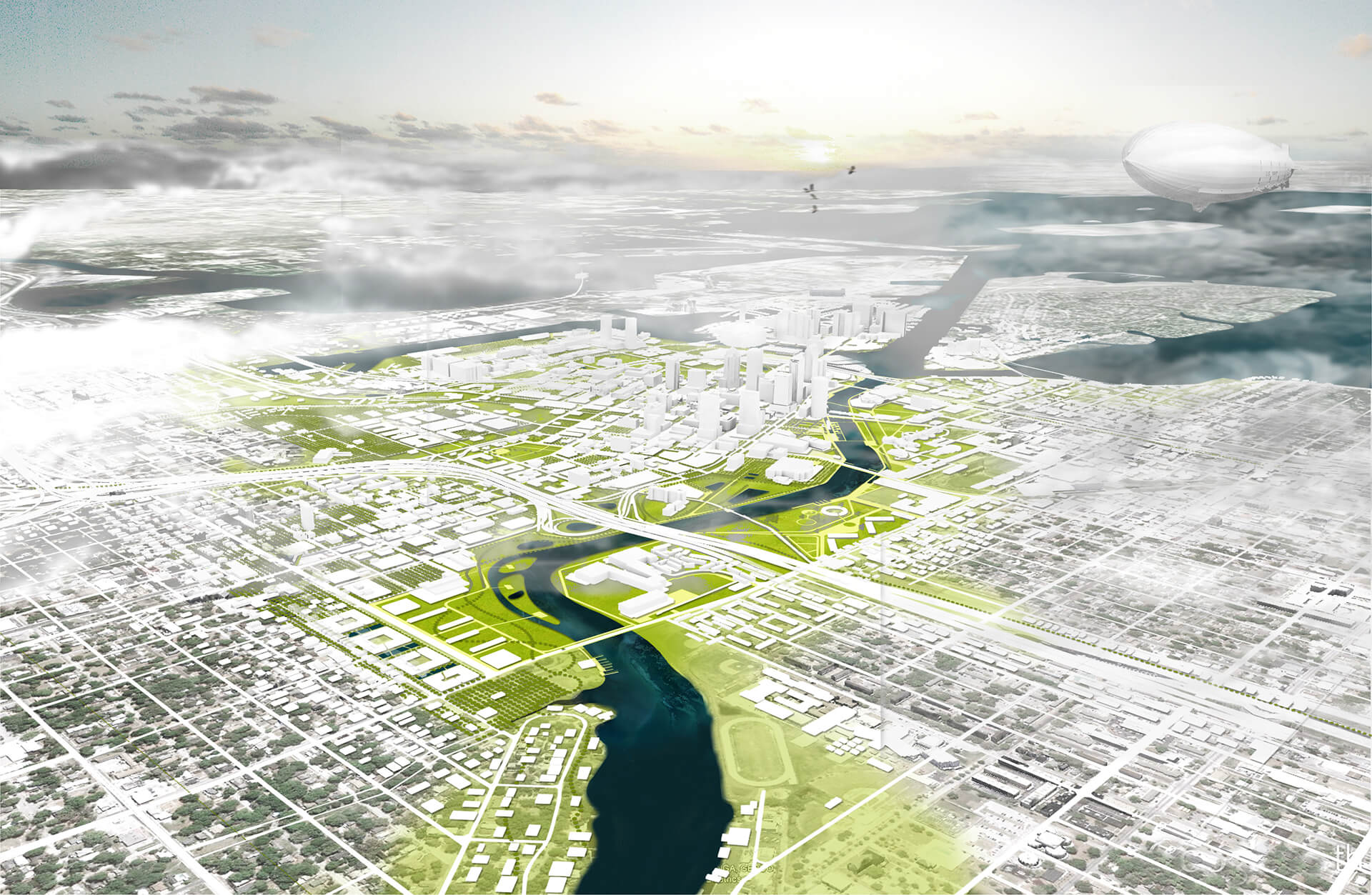

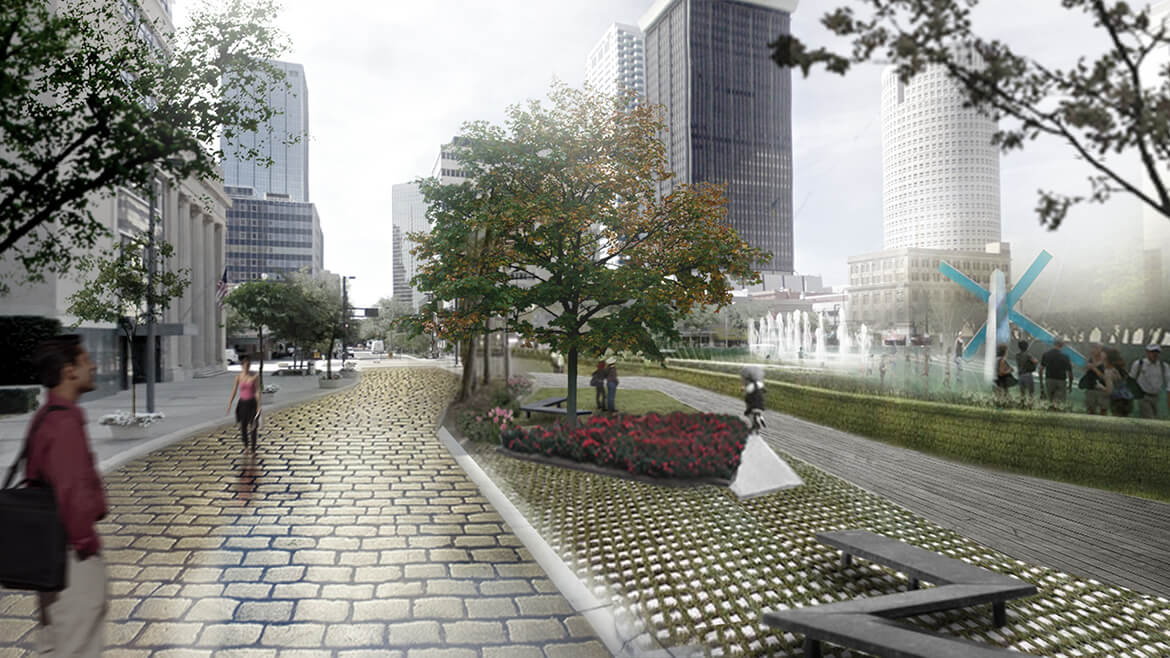

The proposed plan uses three new interconnected public space typologies, functionally linked to provide a variety of distinct public uses, improve water quality, ecology and biodiversity, and fully manage stormwater downtown, while protecting the city against potentially disasterous storm surge. By mutually servicing infrastructure and social demands, quality of life, ecology, and safety are improved at low cost.
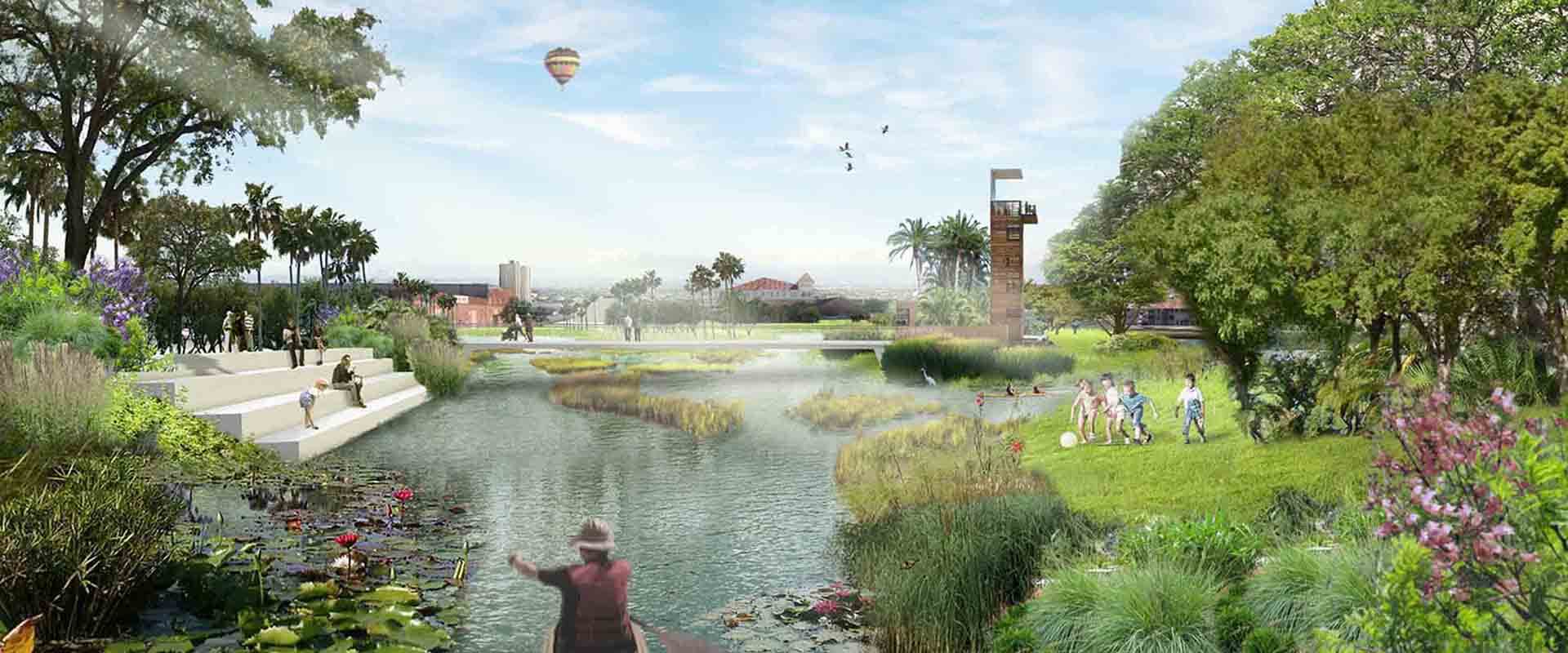

1. Urban Wetlands Parks: Outside downtown Tampa the edge of the Hilborough River transformed via renaturation parks. Parks clean stormwater, improve water quality, and open public space. The parks increase biodiversity including fish and waterfowl, and of course providing Tampa families a cool place to relax and play. Urban nature parks are linked via a waterfront corridor.
2. Floating Phyto-Islands: Contructed islands ebb and flow with the tide along the waterfront in downtown Tampa, cleaning stormwater with proven phytoremediation cell technology, offering docks for boating and space for small businesses.
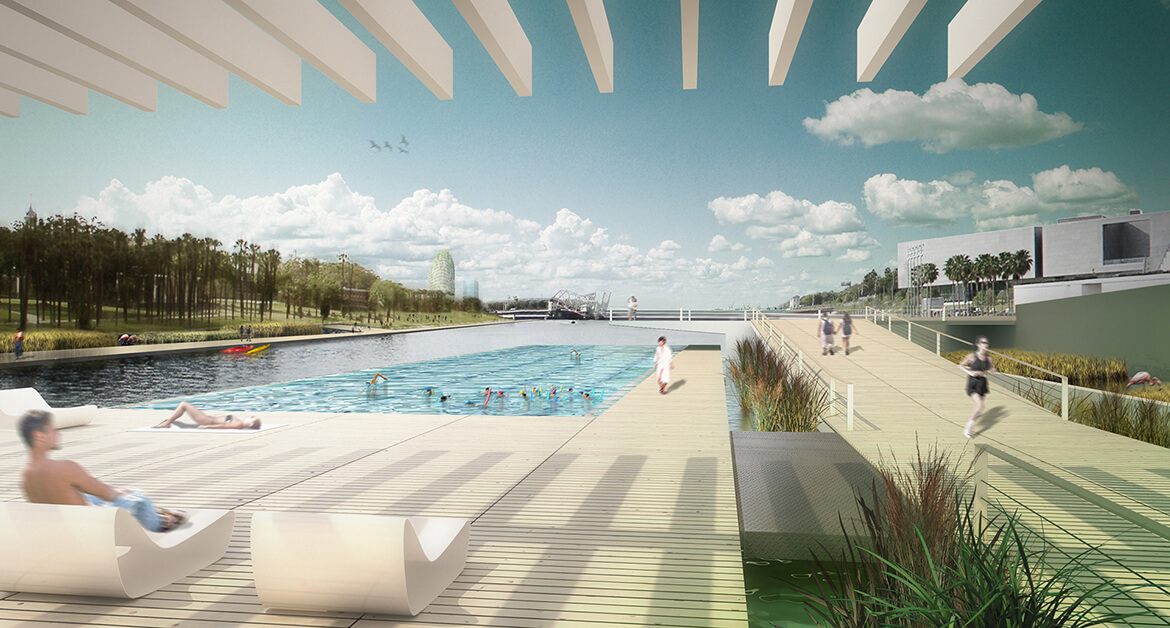

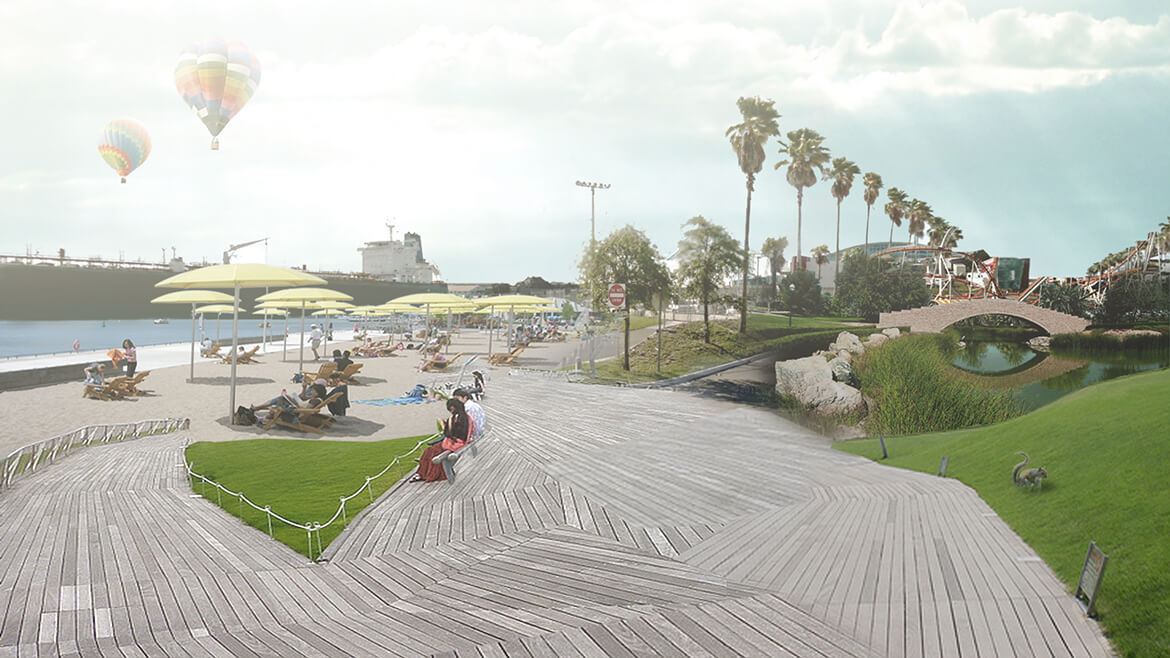

3. A central downtown park restores a neighborhood disconnected by traffic infrastructure, while providing needed public green space and manage and clean stormwater through a large rainwater retention pool. The pool floods after summer rains, lowering the temperature of local area. The water gradually recedes and the paved plaza is revealed again.
